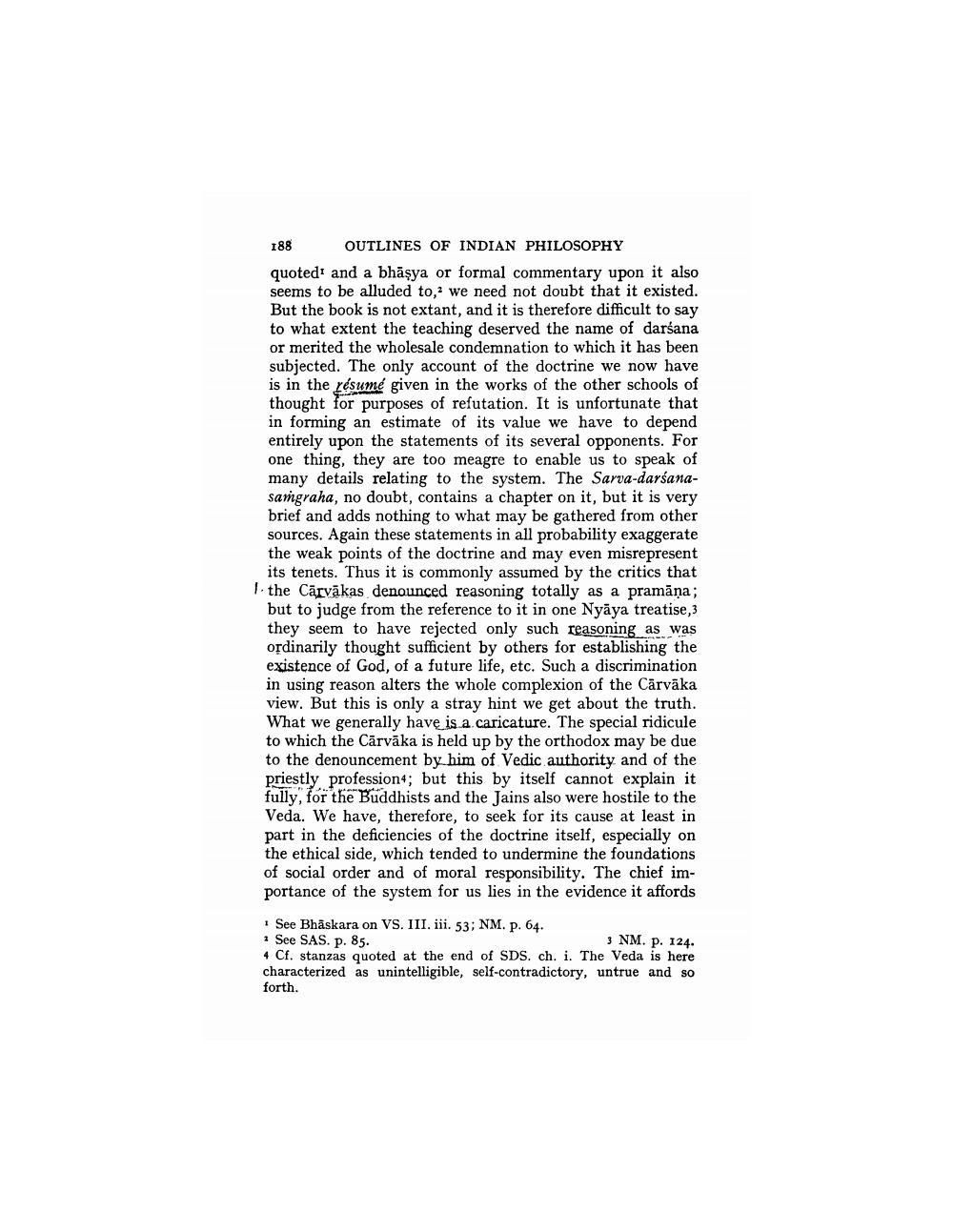________________
188 OUTLINES OF INDIAN PHILOSOPHY quoted' and a bhāşya or formal commentary upon it also seems to be alluded to, we need not doubt that it existed. But the book is not extant, and it is therefore difficult to say to what extent the teaching deserved the name of darśana or merited the wholesale condemnation to which it has been subjected. The only account of the doctrine we now have is in the résumé given in the works of the other schools of thought for purposes of refutation. It is unfortunate that in forming an estimate of its value we have to depend entirely upon the statements of its several opponents. For one thing, they are too meagre to enable us to speak of many details relating to the system. The Sarva-darśanasamgraha, no doubt, contains a chapter on it, but it is very brief and adds nothing to what may be gathered from other sources. Again these statements in all probability exaggerate the weak points of the doctrine and may even misrepresent
its tenets. Thus it is commonly assumed by the critics that 1. the Cārvākas denounced reasoning totally as a pramāņa; but to judge from the reference to it in one Nyāya treatise,3 they seem to have rejected only such reasoning, as was ordinarily thought sufficient by others for establishing the existence of God, of a future life, etc. Such a discrimination in using reason alters the whole complexion of the Cārvāka view. But this is only a stray hint we get about the truth. What we generally have is a caricature. The special ridicule to which the Cārvāka is held up by the orthodox may be due to the denouncement by him of Vedic authority and of the priestly profession; but this by itself cannot explain it fully, for the Buddhists and the Jains also were hostile to the Veda. We have, therefore, to seek for its cause at least in part in the deficiencies of the doctrine itself, especially on the ethical side, which tended to undermine the foundations of social order and of moral responsibility. The chief importance of the system for us lies in the evidence it affords
See Bhāskara on VS. III. iii. 53; NM. p. 64. See SAS. p. 85.
3 NM. P. 124. 4 Cf. stanzas quoted at the end of SDS. ch. i. The Veda is here characterized as unintelligible, self-contradictory, untrue and so forth.




